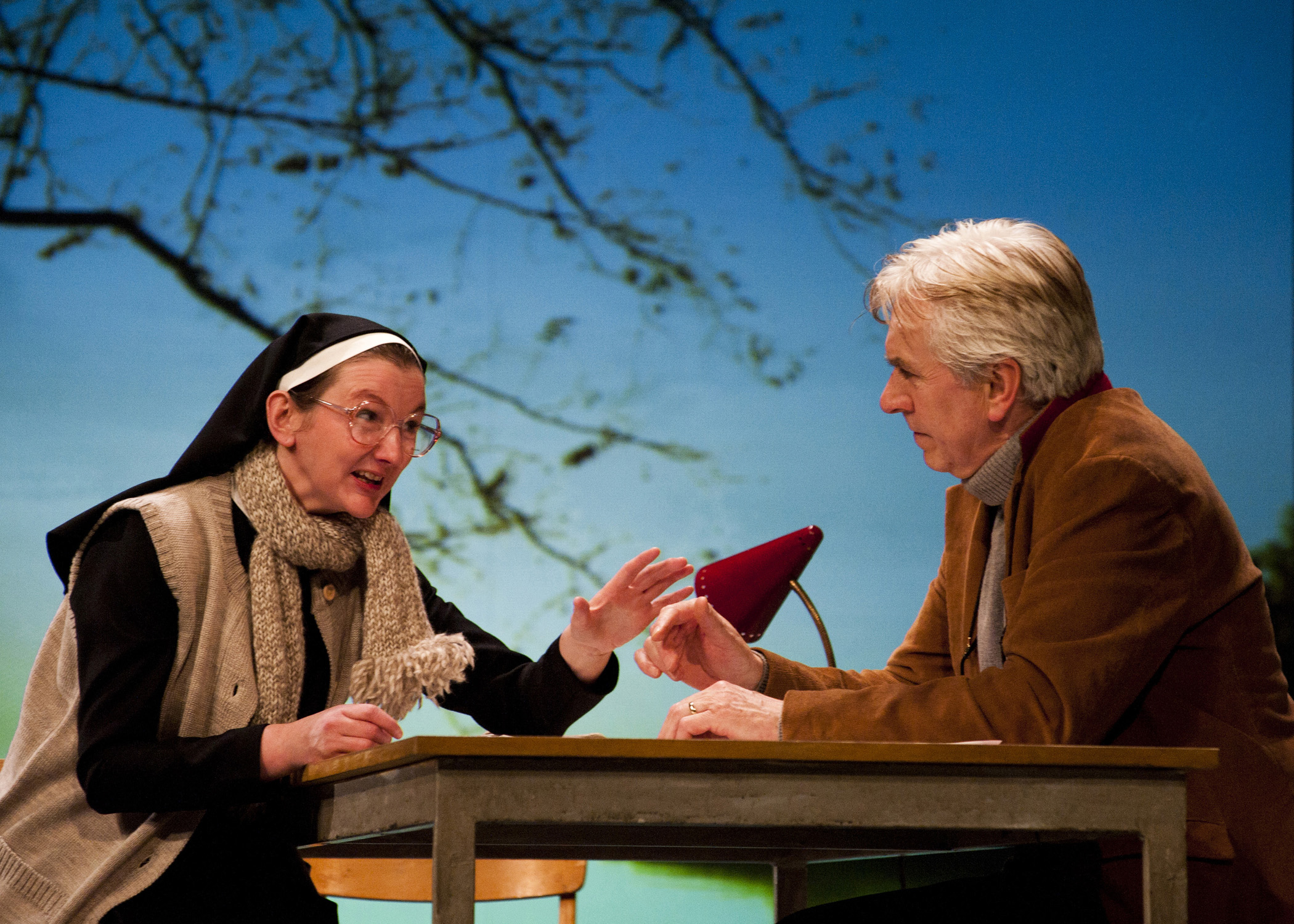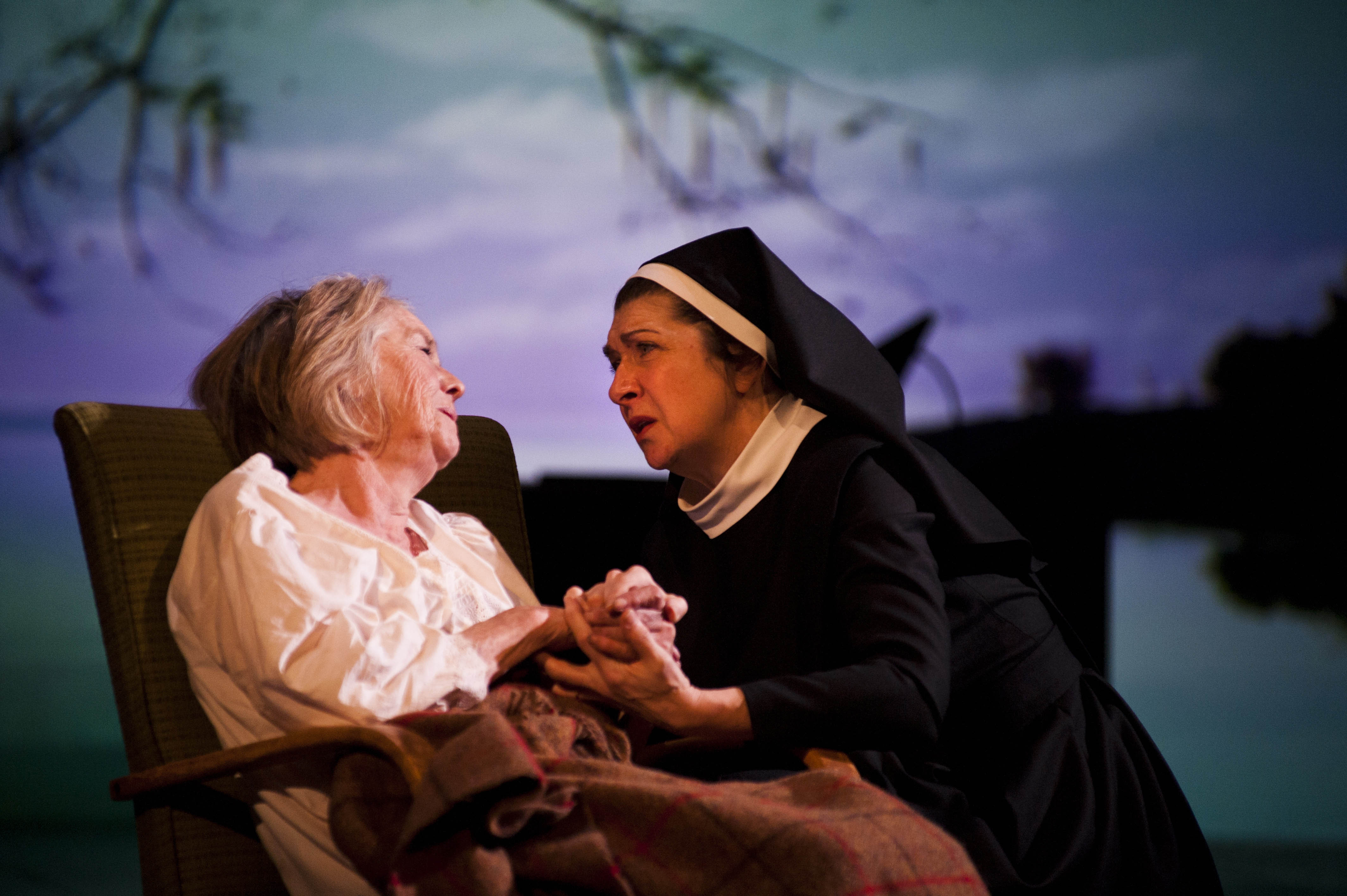Abi Morgan is on something of a multi-platform roll right now. Between writing the Beeb's enjoyably hokey The Hour and scripting The Iron Lady, the Margaret Thatcher biopic which will be hitting our screens shortly before Christmas with all the force of a jet-propelled handbag, comes a new play for the National Theatre of Scotland. An altogether more esoteric offering, 27 raises questions of faith, morality, memory and the role of science by examining the lives of a group of nuns.
Mother Superior Miriam and the younger Sister Ursula (“Jackie to her JFK”) belong to a convent in a remote part of Scotland. Even in her eighties, Miriam (Colette O’Neil) remains the fulcrum, her bright, inquisitive mind binding the women together. Ursula (Maureen Beattie) is a torrential force of nature but behind her frantic energy lies doubt and fear.

Ursula realises that it wasn’t God she believed in all along, but the wit, wisdom and humanity of her closest friend
The experiment requires those participating to donate their brains to science after death, a decision which pitches pathology and rationalism against wonder and faith. By the end neither side is terribly sure of its footing, as over five years of annual visits the scientists bring not just their files, Dictaphones and flash cards, but stirrings of sex, love and Mammon, raising more questions than their experiments can ever hope to answer but which can be summarised thus: to meet the world or to retreat?
At the extremities of the group some certainties hold fast. For young researcher Sam (Finn den Hertog), cocky, ambitious and in love (or at least in lust) with his American counterpart Helen (Libby King), it’s all one big abstraction, a matter of statistical analysis leading to published articles leading to a job with a pharmaceutical firm, a bigger car and new wonder pills to peddle. On the other side, Ruth (Molly Innes), the nun with the most resolute faith, questions why science “needs to colonise the miracle” of the brain’s seemingly inexplicable ability to function when all the hard evidence suggests it should have fused long ago.

The scientist and the nun meet in the middle, drawn together by their doubts and their willingness to find sanctuary in their own uncertainties. Along the way 27 touches on such givens as the compromises of marriage and the dubious morality of drug companies, but to its credit never loses sight of its core interest in the fundamentally human struggle for meaning. Directed with clarity by Vicky Featherstone, Morgan’s script - drawing on a similar research programme recounted in Dr David Snowdon’s book Ageing with Grace - is witty, emotive, multilayered and grounded in reality (to the point of occasionally becoming soapy and simplistic), portraying religious devotees who are very much part of the real world of frozen Iceland chickens, bourbon biscuits, EastEnders and Countdown.
Merle Hensel‘s set is spare and appropriately chilly, the austerity of the high, grey convent walls lightened by a flash of red roses, a shaft of light from unseen rooms and the shifting seasonal moods displayed on the projected backdrop of the loch. Morgan’s downbeat but quietly affirming resolution suggests that life, whichever path we chose, is ultimately about embracing absences. Without certainty we reach for what - and who - we can and shape our world around it, learning to accept that there is much that we must live without.
- 27 is at the Royal Lyceum Theatre, Edinburgh until 12 November














Add comment